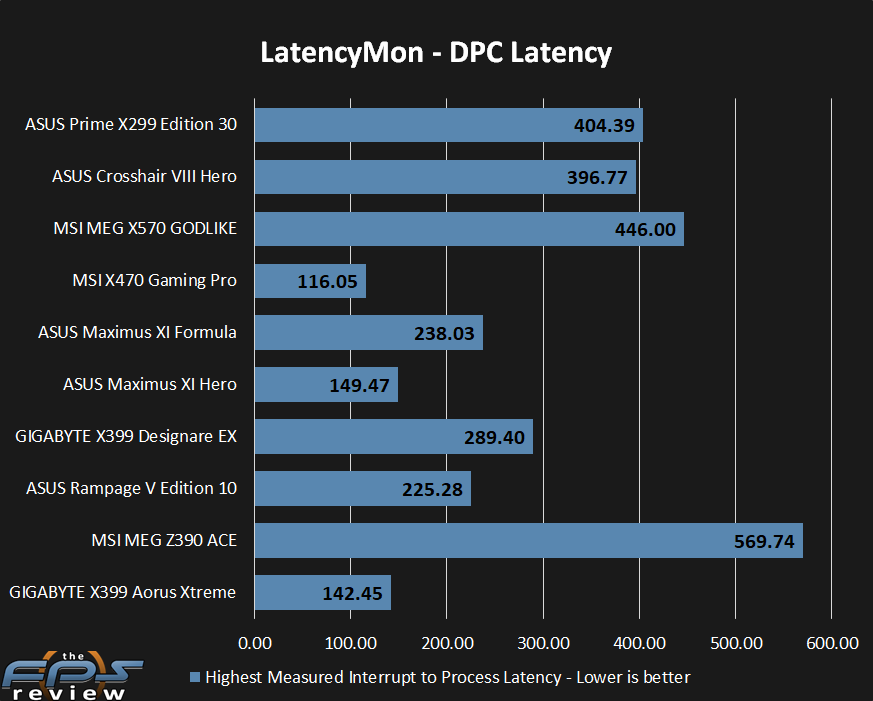Subsystem Testing
For all Subsystem Testing, an Intel Core i9 10980XE (3.0GHz / 4.6GHz Boost) and 4x 8GB (32GB total) Corsair Vengeance LPX (3866MHz DDR4 18-19-19-28, 1T@1.35v) memory modules running at DDR4 3200MHz speeds were used. For power, I used the an Enermax MaxTytan 800watt unit. Our discreet graphics card needs were handled by an MSI RTX 2080 Super Gaming X-Trio. The CPU was cooled with a Koolance Exos 2.5 system and a EK Velocity RGB water block. The internal flow channel was properly configured for Intel’s HEDT CPU’s.
Sound Hardware
The ASUS Prime X299 Edition 30 utilizes what ASUS calls it’s Crystal Sound 3 audio solution. The composition of this implementation includes a Realtek S1220A HD audio codec. The implementation features audio shielding, premium Japanese audio capacitors, dedicated audio PCB layers, a de-pop circuit and a power pre-regulator. This CODEC features a 120dB signal to noise ratio for the stereo line-out and 113dB SNR for line-in. Like other ASUS solutions, the Prime X299 Edition 30 offers impedance sending capability. That is, when connecting headphones, the circuit will configure the output to the same impedance for optimal sound quality.
Audio Specifications
Realtek® S1220A 8-Channel High Definition Audio CODEC
- Power pre-regulator reduces power input noise to ensure consistent performance
- Impedance sense for front and rear headphone outputs
- Internal audio Amplifier to enhance the highest quality sound for headphone and speakers
- Supports : Jack-detection, Multi-streaming, Front Panel Jack-retasking
Audio Feature : - DTS X®:Ultra
- Optical S/PDIF out port(s) at back panel
- Audio Shielding: Ensures precision analog/digital separation and greatly reduced multi-lateral interference
- Dedicated audio PCB layers: Separate layers for left and right channels to guard the quality of the sensitive audio signals
- Premium Japanese-made audio capacitors: Provide warm, natural and immersive sound with exceptional clarity and fidelity
- Unique de-pop circuit: Reduces start-up popping noise to audio outputs
Audio – Subjective Listening
The quality of the audio solution is excellent. When playing music or playing games, the sound quality was rich, vibrant and clear. The test consisted of listening to music from Spotify as well as playing games such as Destiny 2 and the others used in our testing suite.
Audio – Subjective Recording / Playback
The audio solution had little distortion with the microphone boost disabled. Naturally, the audio levels were quite low. In some cases, distortion is present with the boost feature disabled, but that wasn’t the case here. When the microphone boost was enabled the recording sample was clear and free of distortion with much greater audio levels.
DPC Latency
For those who may not know what DPC is, I’ll explain. Deferred procedure calls are a function within Windows that allows higher priority tasks such as device drivers to defer lower priority tasks for execution at later times. It’s an interrupt and reassignment of sorts performed by the operating system.
DPC latency varies from board model to model and brand to brand. DPC issues show up in the form of audio dropouts and streaming video issues. Naturally, this is something that the enthusiast would want to avoid. I used LatencyMon and let it run for 10 minutes to graph the results. I have compiled a list of several systems I’ve tested over the last year and placed the results in a graph for easy reference. This way we can compare DPC results to other motherboards which should be more meaningful than the old format I used before.

In this test, we saw a DPC latency of 404.39. This is on the higher end of the spectrum than some other systems we’ve tested. However, its well below a threshold for concern. At no point were their issues with audio playback, be it music, videos or gaming.
